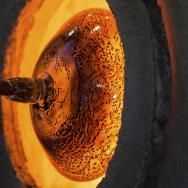Three University of Chicago scientists have received 2018 awards from the Simons Foundation.
Two professors were named Simons Investigators, given to “outstanding theoretical scientists” who receive $100,000 of research support per year for five years:
- Shinsei Ryu, associate professor of physics, studies quantum mechanics, particularly in condensed matter systems, with an eye toward exploiting quantum effects to enable quantum computation and quantum communication in next-generation electronics. The award will fund his research into topological phenomena and quantum entanglement in condensed matter physics.
- André Neves, professor of mathematics, is a geometer who has specialized in the study of minimal surfaces, i.e, shapes in space that are in some equilibrium position. They appear naturally in several applied fields, from general relativity to material sciences. His work includes a proof of the Willmore conjecture, or the lower bound of how far the surface area of a torus can deviate from a sphere, and a proof of abundance of minimal surfaces in general ambient spaces. He plans to use the fellowship to investigate other uses of minimal surfaces in geometry.
String theorist Emil Martinec was named a Simons Fellow in Theoretical Physics. The Simons Fellows program extends academic leaves from one term to a full year, enabling recipients to focus solely on research for the long periods often necessary for significant advances.
Martinec, professor in the Department of Physics and the Enrico Fermi Institute and directs the Kadanoff Center for Theoretical Physics, was part of a group that developed heterotic string theory—part of a revolution that opened up the discipline in the 1980s. Today he studies the structural foundations of string theory, including how black holes fit into the theory and what this might mean for our conceptions of space and time. He plans to use the fellowship to attend a workshop on black holes hosted by the National Science Foundation’s Institute for Theoretical Physics, as well as two academic terms working with collaborators in Paris.
